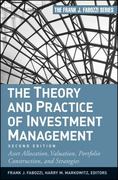
Common stock versus warrant investment Personal Finance Problem Tom Baldwin can invest $4,000 in the common stock or the warrants of Lexington Life Insurance. The common stock is currently selling for $70 per share. Its warrants, which provide for the purchase of 5 shares of common stock at $65 per share, are currently selling for $29. The stock is expected to rise to a market price of $75 within the next year, so the expected theoretical value of a warrant over the next year is $50. The expiration date of the warrant is 1 year from the present. a. If Mr. Baldwin purchases the stock, holds it for 1 year, and then sells it for $75, what is his total gain? (Ignore brokerage fees and taxes.) b. If Mr. Baldwin purchases the warrants and converts them to common stock in 1 year, what is his total gain if the market price of common shares is actually $75? (Ignore brokerage fees and taxes.) c. Repeat parts a and b, assuming that the market price of the stock in 1 year is $67. d. Discuss the two alternatives and the trade-offs associated with them. a. If Mr. Baldwin purchases the stock, holds it for 1 year, and then sells it for $75, his total gain is $ (Round to the nearest dollar.) Common stock versus warrant investment Personal Finance Problem Tom Baldwin can invest $4,000 in the common stock or the warrants of Lexington Life Insurance. The common stock is currently selling for $70 per share. Its warrants, which provide for the purchase of 5 shares of common stock at $65 per share, are currently selling for $29. The stock is expected to rise to a market price of $75 within the next year, so the expected theoretical value of a warrant over the next year is $50. The expiration date of the warrant is 1 year from the present. a. If Mr. Baldwin purchases the stock, holds it for 1 year, and then sells it for $75, what is his total gain? (Ignore brokerage fees and taxes.) b. If Mr. Baldwin purchases the warrants and converts them to common stock in 1 year, what is his total gain if the market price of common shares is actually $75? (Ignore brokerage fees and taxes.) c. Repeat parts a and b, assuming that the market price of the stock in 1 year is $67. d. Discuss the two alternatives and the trade-offs associated with them. a. If Mr. Baldwin purchases the stock, holds it for 1 year, and then sells it for $75, his total gain is $ (Round to the nearest dollar.)







